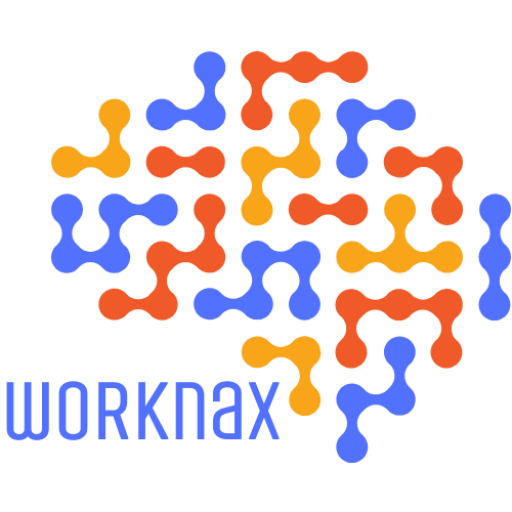Anúncios
In recent years, the landscape of personal finance education has undergone a dramatic transformation, especially with the rise of online learning platforms. As individuals increasingly aspire to improve their financial literacy and manage their personal finances more effectively, the demand for high-quality courses has surged dramatically. Understanding the intricacies of money management, investing, saving, and budgeting is no longer something confined to financial professionals alone. Instead, everyday people are actively seeking to take control of their financial futures through accessible, interactive, and engaging online courses tailored to meet their needs.
One of the most significant trends in online personal finance education is the shift toward course formats that prioritize interactivity and practicality. Unlike traditional classroom settings that often emphasize passive learning through lectures, these innovative online courses frequently incorporate real-life scenarios, simulations, and case studies. This hands-on approach enables learners to apply financial concepts in meaningful ways that enhance retention and understanding over time. Platforms such as Coursera and Udemy have played pivotal roles in driving this trend, offering interactive elements like quizzes, gamified learning experiences, and discussion forums that enrich the overall educational journey.
Another notable trend in personal finance courses is the emergence of micro-learning. This educational approach focuses on delivering short, bite-sized content that learners can easily absorb in a limited amount of time. This format is ideal for busy individuals who are balancing work and personal commitments, allowing course participants to master small yet critical financial concepts at their own pace. Consequently, many educational platforms now offer micro-learning options in the form of brief lessons, quick tips, and interactive quizzes that maximize learning efficiency and retention while accommodating diverse schedules.
The importance of mental health and well-being in financial education has also started to gain traction in this evolving landscape. Understanding personal finance is not solely about numbers, calculations, and financial strategies; it is also deeply intertwined with the psychological aspects of money management. Courses that delve into essential topics like financial anxiety, budgeting for life goals, and cultivating a healthy relationship with money have become increasingly popular. These courses encourage students to take a step back and reflect on their financial habits and values, ultimately leading to a more holistic and fulfilling approach to personal finance management.
Moreover, the influence of social media on personal finance education cannot be understated. Platforms like TikTok, Instagram, and YouTube have given rise to a new wave of finance coaches and educators who share valuable insights and information in a visually appealing and easily digestible format. These quick tips and engaging stories resonate strongly with younger audiences, many of whom are more likely to seek financial advice through these vibrant channels. Consequently, formal courses are now leveraging social media as a tool to promote their content, offering snippets or exclusive insights designed to attract potential students and build community engagement.
In addition to these shifts, the focus on inclusion and diversity in personal finance education has garnered increasing attention. Recognizing that different demographic groups face unique financial experiences and challenges, many online courses aim to create content that is relatable and relevant to a broader audience. Courses specifically addressing financial issues pertinent to women, people of color, and low-income households are gaining popularity. By tailoring the curriculum to meet diverse needs, these courses promote greater financial literacy and empowerment across varied demographics, enriching the overall discourse around personal finance education.
Certificates and accreditations have also gained importance as prospective students increasingly seek credentials that can establish credibility in their personal and professional pursuits. More learners are looking for courses that not only provide valuable knowledge but also offer certification upon completion. Recognized certifications can boost a participant’s confidence and enhance their resume in the job market. As a result, educational platforms that partner with reputable institutions to provide accredited courses are more likely to attract motivated students eager to gain skills that differentiate them within their respective fields.
On a similar note, gamification has emerged as an innovative trend within personal finance courses. By incorporating game-like elements such as points, levels, and rewards, educators are making the learning process more dynamic and engaging. This interactive format appeals to learners of all ages, promoting regular participation and fostering ongoing motivation. Gamification effectively transforms education from a passive experience into an active, enjoyable pursuit, encouraging students to navigate through courses as they would in a game, thus enhancing their learning journeys.
Live workshops and webinars have also become particularly popular among personal finance education offerings, allowing learners to engage with instructors and peers in real time. This regular interaction during sessions fosters a sense of community and camaraderie among participants, providing opportunities to ask questions and seek clarification on complex topics. Attendees often leave these interactive sessions feeling more connected and informed, ultimately enhancing their overall learning experience. Additionally, many courses now incorporate recorded sessions that learners can revisit, blending the instant feedback and engagement of live interactions with the flexibility afforded by self-paced learning.
Another exciting trend involves the integration of technology, particularly artificial intelligence (AI), into personal finance education. AI-driven tools can provide personalized insights based on an individual’s unique financial situation, helping students better understand their respective paths to financial health. Many courses have begun to include AI features that analyze spending patterns, recommend budgeting strategies, and link to useful financial resources tailored to individual needs. This personalized approach allows learners to apply what they’ve learned in a more relevant context, making the educational experience more impactful.
To appeal to a wider audience, many personal finance courses have shifted towards hybrid models that incorporate both online and offline elements. While the convenience and flexibility of online courses remain a massive draw for many learners, some individuals benefit immensely from in-person engagement and networking opportunities. Workshops, meetups, and community events allow participants to interact directly with instructors and fellow students, fostering valuable relationships that can extend far beyond the classroom and enhance the learning experience.
Furthermore, course content has expanded significantly to include essential topics that go beyond foundational finance management. Modern courses now address contemporary issues such as retirement planning, investment strategies, tax optimization, and the impacts of economic changes on personal finance. This comprehensive approach helps learners prepare for real-world financial decisions and equips them with the knowledge necessary to navigate complex situations as they arise, reinforcing the practicality and relevance of personal finance education.
In addition, many reputable personal finance courses are now offered for free or at a low cost, marking a significant step toward increasing accessibility for all potential learners. This democratization of financial education is vital for ensuring that everyone, regardless of their background, has an opportunity to learn effectively about managing their finances. With platforms like Khan Academy and various financial institutions providing free resources and courses, knowledge about financial literacy is now more accessible than ever before. This trend encourages individuals from all economic backgrounds to invest their time and energy into enhancing their financial education and well-being.
Additionally, there is a continuing rise in the focus on ethical investing and sustainable finance within personal finance education. As more individuals become conscious of the impact their financial decisions have on the environment and society, they are actively seeking education that incorporates these principles. Courses addressing essential topics such as socially responsible investing, impact investing, and ethical budgeting are quickly gaining traction in today’s educational landscape. This shift reflects a broader transformation in how individuals perceive money—not merely as a tool for personal gain, but as a means to foster positive change in society.
In summary, the world of personal finance education continues to evolve rapidly, driven by technological advancements, societal changes, and the growing need for enhanced financial literacy among individuals. Whether through interactive online courses, micro-learning strategies, or community-building initiatives, these emerging trends empower individuals to take charge of their financial futures. As learners increasingly prioritize practical knowledge, inclusion, and ethical considerations, personal finance courses will continue adapting to meet the evolving needs of students. It’s an exciting and transformative time in this field, offering opportunities for everyone to gain the confidence and competence necessary for effectively managing their finances in an ever-changing economic landscape.



